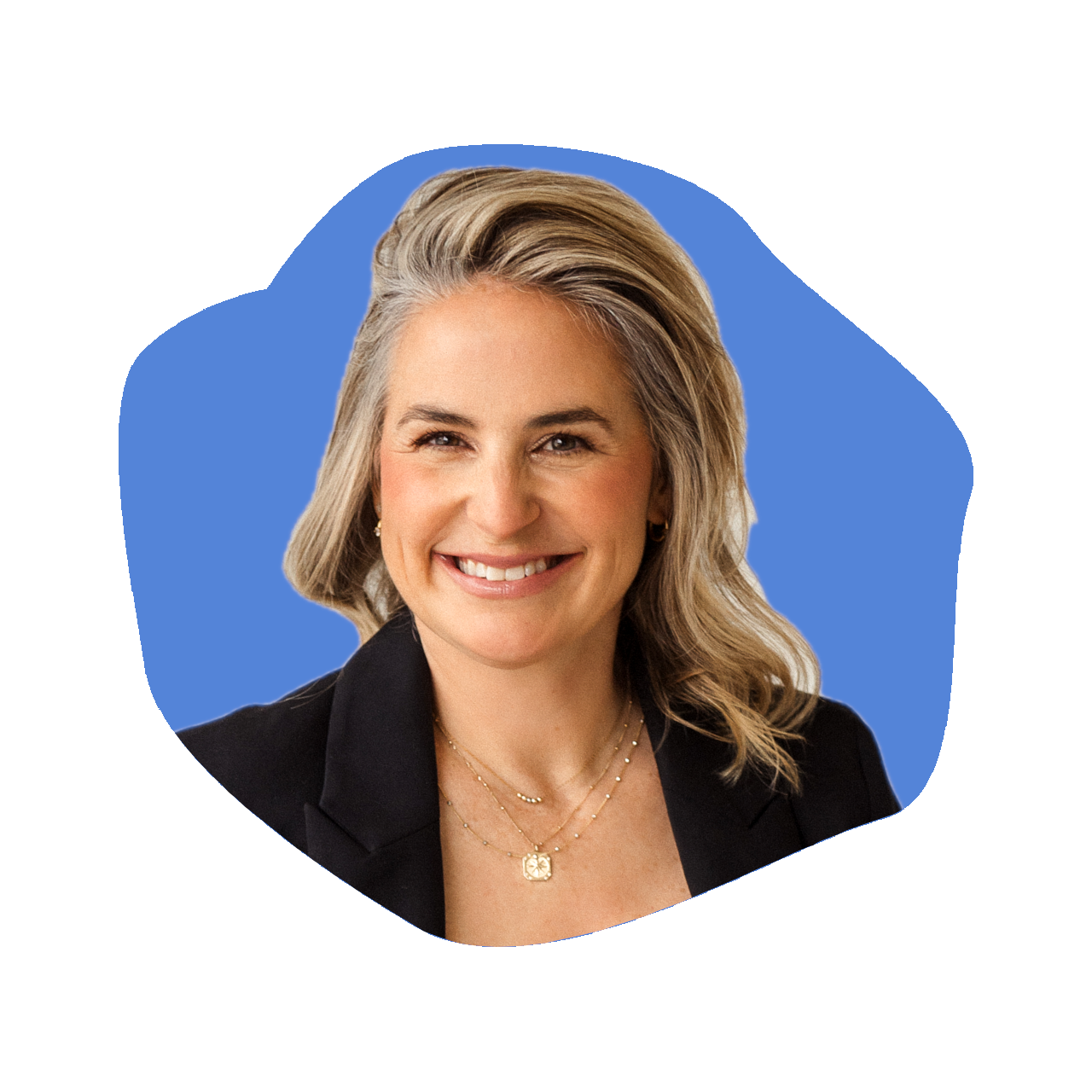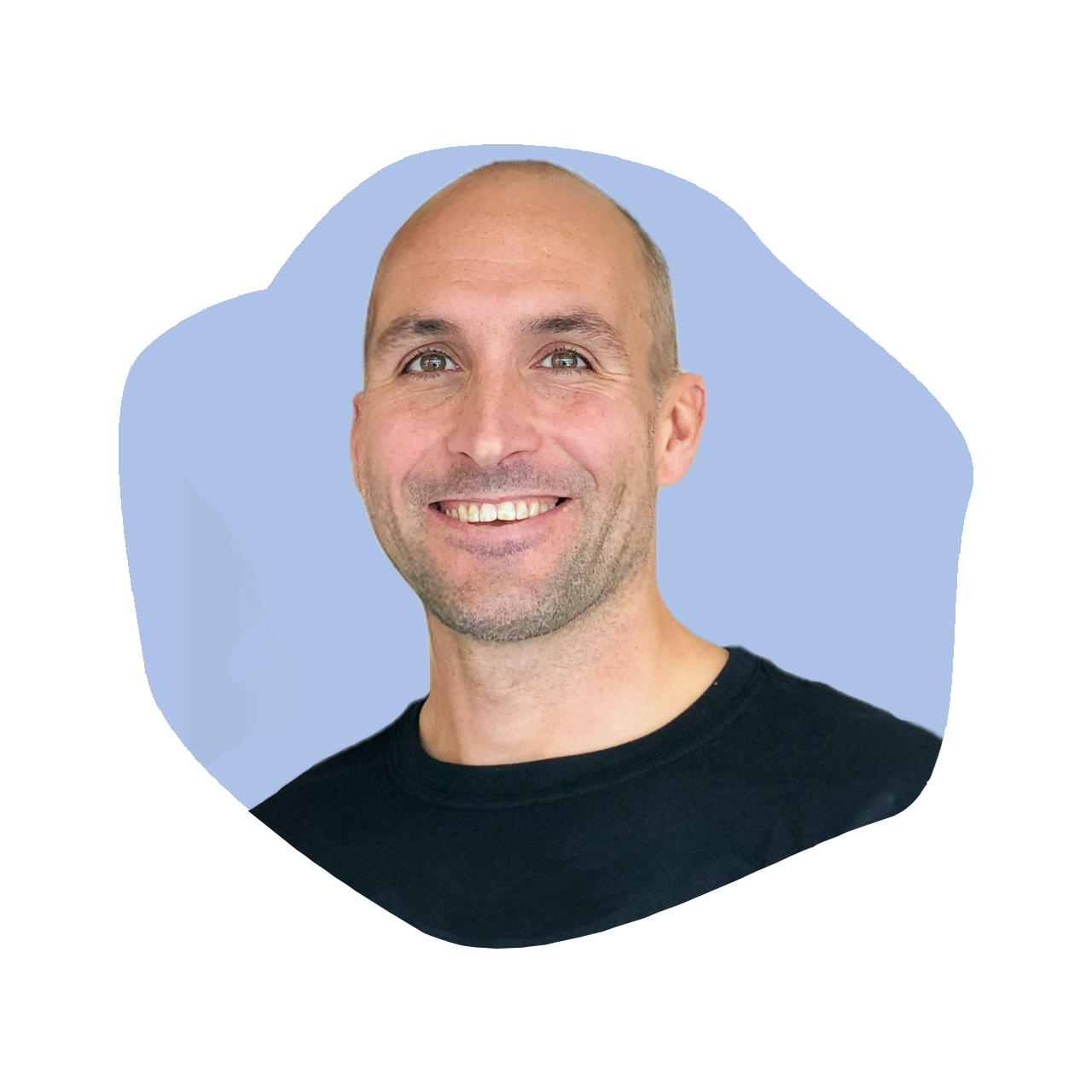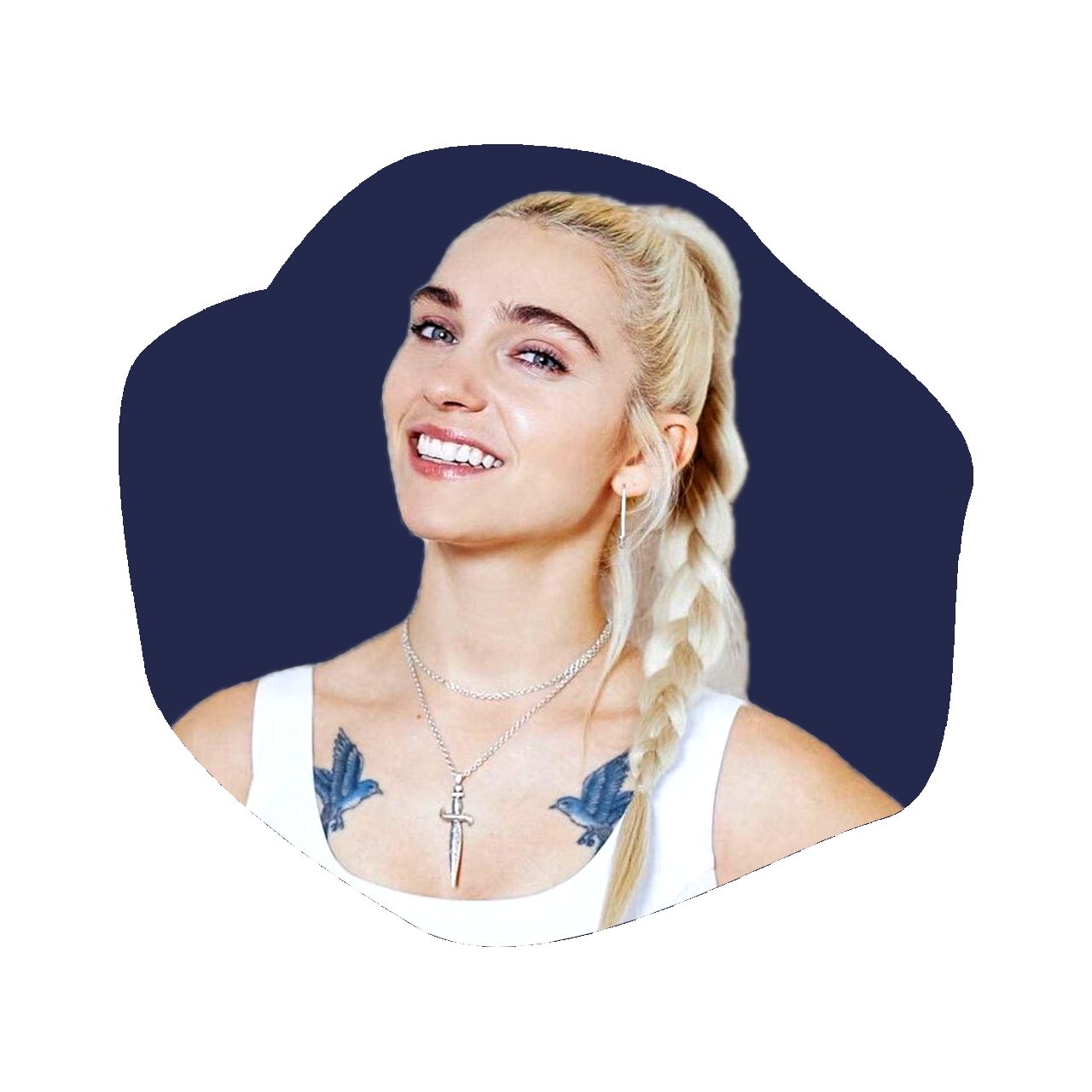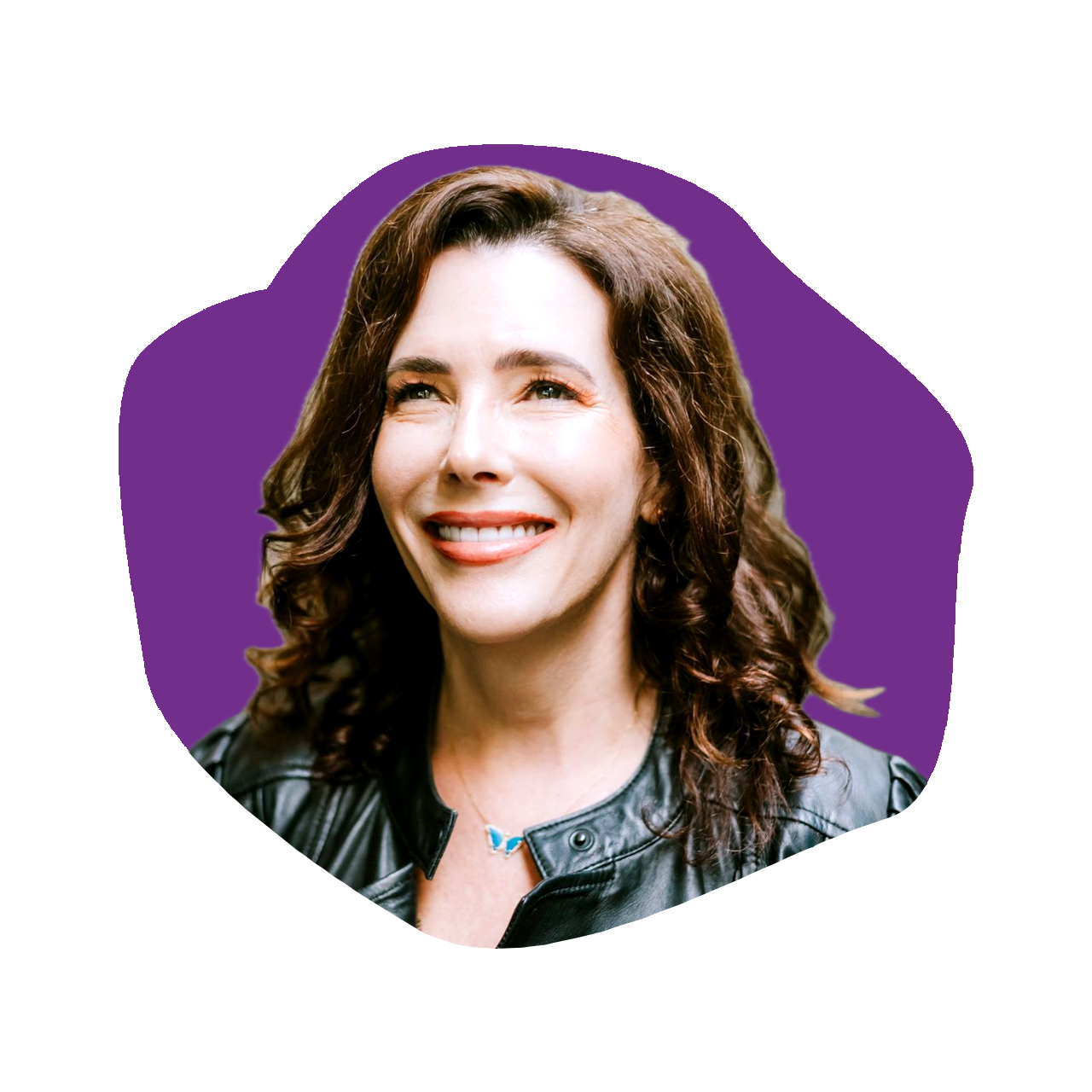Liz Hilton Segel – Managing Partner for McKinsey in North America
Episode 109
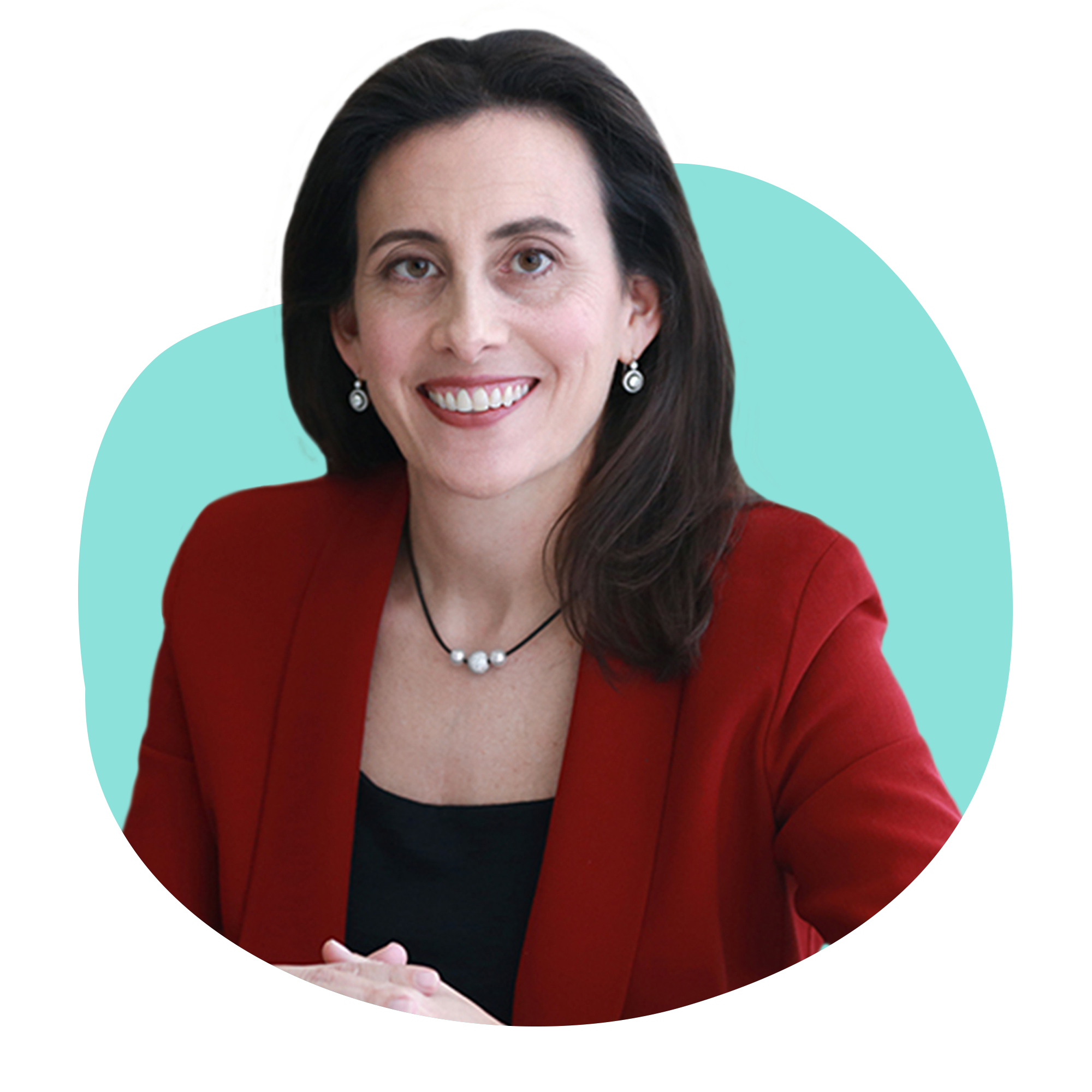
Resources from
this episode:
Enjoying this episode of #TheKaraGoldinShow? Let Kara know by clicking on the links below and sending her a quick shout-out on social!
Follow Kara on LinkedIn – Instagram – X – Facebook – TikTok – YouTube – Threads
Have a question for Kara about one of our episodes? Reach out to Kara directly at [email protected]
Transcript
Kara Goldin: Hi everyone. It’s Kara Golden and this is the Kara Golden show. And I’m so excited to have my next guest here. Liz Hilton Segel, who is the managing partner for North America at McKinsey. And I’m very, very excited to have her here for a number of reasons, but for just a little bit of background on Liz, she is one of the managing partners at McKinsey company North America, which is an amazing, amazing consulting firm that has helped so many companies throughout many, many years.
And she leads the firm in the US, Canada and Mexico. She has served several clients over the course of her tenure there and boards as well. And she’s just a true trailblazer and is the first woman to hold this office at McKinsey, which is super awesome. Thank you for stepping up and taking on this responsibility. I love it. And she’s an avid champion of inclusion and diversity and advancement. We’re going to talk a little bit more about that and about what she sees going on out there too. So thank you Liz for coming and joining. I appreciate it.
Liz Hilton Sega…: Thank you so much for having me on the show.
Kara Goldin: Yeah. Awesome. So tell me a little bit more about your background before McKinsey. What were you doing?
Liz Hilton Sega…: So look, I joined McKinsey out of college. I am a born and raised new Yorker. I am the child of two PhDs in psychology. My mother was a professor of graduate students in psychology, and my father was a senior executive in business. So I found that coming to McKinsey was an opportunity to make businesses more successful, but also to understand how people work and how you can help them achieve their full potential.
Kara Goldin: I love it. And so did you always, even when you were in college, did you think… Did you know what a consultant was when you were in college? I mean, what was
Liz Hilton Sega…: My sisters were much older than I was growing up. And so one of my sisters was 10 years older than I was. She had a good friend in college who was an investment banker. So I had it in my head starting in about middle school that I wanted to be an investment banker, but when I got to college, I had the opportunity to run the newspaper in college. And so I would go to class occasionally, but mostly focused on running the business, which was the newspaper. And through that experience, I learned a little bit about what management consulting was and thought that might be a nice way to begin my career in business.
Kara Goldin: That’s fine. Did you ever think that you would be there this long?
Liz Hilton Sega…: I had no idea. I had no idea. I was pretty much focused on a couple of years before business school. And here I am, about 30 years later and still loving it.
Kara Goldin: What do you think the is the thing that people don’t know about having the consulting as a career? Like what do you love about it so much that you think a lot of people might not realize?
Liz Hilton Sega…: You have an opportunity to learn from so many amazing executives. The whole thing about consulting is that you’re partnering with another person to help them achieve something that they think might be both amazing and maybe impossible. And so through my career, starting even my first year out of college, all the way through now, you get to work with leaders who really teach you something about how to mobilize people to great things. And so you have the joy of achieving things together, but also the constant learning from others. I have always loved that.
Kara Goldin: I love it. Very, very cool. It’s almost like coaching in some ways. Right. But I think that you’ve also got the ability to go and look at so many different companies along the way, too, which I think is super cool, especially for telling me
Liz Hilton Sega…: You learn a little bit bout how people inspire others. How do they give them a sense of belief or how do they give them a sense of their own strengths that make people take risks or try things they wouldn’t otherwise try. So it’s fun to see others lead and to learn from that.
Kara Goldin: That’s awesome. So you are a huge champion of inclusion in the workplace. You wrote an amazing article recently called Five Ways to Design a Better Mental Health Future for a Stressed Out Workforce. I’d love first to talk about the inclusion side and kind of where… Like, when did you really start thinking that it was something that you would become? Did it come naturally, did you get assigned it? I mean, did you start seeing it in some of your assignments that you were working on or where did this, this whole topic…
Because I think you were very early and kind of looking at inclusion in the workplace overall, and I’d love to kind of hear where that stemmed from.
Liz Hilton Sega…: You know, look, I think it stemmed from a couple of different places, certainly it partially stemmed from my own experience, right. I have been the person who was the only woman in a business meeting of men and the firm has, through our women in the workplace research, done quite a lot of analysis and understanding around the topic of what does it feel like to be an only, and what is that unique experience? So there were certainly times when I felt as if my own experience set or my own inclinations were not necessarily welcome and they were quite relevant to the question at hand. I can remember being in one client situation where we were having a conversation about a business that was looking at a digital grocery experience.
And I finally just literally said out loud, “Folks, I think I’m the only person in this room that actually does the weekly grocery shopping. So let me give you my point of view on what would actually be great to have in that experience and what probably wouldn’t be that great.”
So that sense of feeling that a discussion would benefit from a diversity of perspectives and not always feeling like those perspectives were valued. That’s part of it. You know, there was another experience I had. It was actually in the context of my daughter’s school, where one of the students gave a speech about whether or not she felt she was able to be her full self in a certain context, it happened to be at a camp. And how she realized in the context of that camp, that her performance wasn’t at the full potential it could be at because she didn’t personally feel comfortable. And her reflection on that experience at camp made her realize that maybe she wasn’t being her full self at school.
And that might be actually having a consequence on her schoolwork. And I said, listen to this relatively young person, give this speech in a school environment. It dawned on me wondering how many of the folks in my work environment don’t feel that they can do their best work because they are not necessarily able to bring their whole self to work. And when you really think about that, does a person feel comfortable being who they are and what they bring and that sense of I belong. And I am welcomed for who I am.
There’s such an amazing correlation to a person’s creativity, to a person’s willingness to take risks to a person’s willingness to go the extra mile. That’s part of what just makes me feel so strongly that I’m happy that we’re on the journey, but I think there’s a lot more that we can do to really ensure that everyone feels a true sense of bringing their best self to work. And then obviously through that, the best work comes out.
Kara Goldin: Yeah. And I just also believe that it’s not something that’s a checkbox though, either. So they’re like bringing, so often I’m sure you’ve been in the same situation where it’s like, okay, let’s get one more woman in here in the room or let’s get one more woman on our board. I’ve certainly been called for a few of those. And I really think that it’s this, how do you change kind of the conversation and how do you really understand the rest of the people in the room to kind of hop on board with this?
Because I think that that’s where I feel like people get stuck to that. It’s not just a checkbox, it’s actually more than that, it’s sort of an attitude and that you need to bring in there. And so how do you do that? Like how do you advise companies to do really do more than get one more person in the room that is a different gender or different color or however you want to look at it. I think that that is the challenge that I think so many people are kind of grappling with.
Liz Hilton Sega…: Yeah. Look, I mean, the diversity side of the question, meaning literally, is there a presence in your organization of people of historically underrepresented groups is certainly a part of it. And this women in the workplace survey that I mentioned that we had done would suggest that on the question specifically of women in the workplace, we are seeing positive advancements. So an example might be at, at entry level you might now have about 47% of entry-level employees are now women, which is up 5% in the last five or six years in the C-suite it’s now at 21%, which would be 22% increase over the last five or six years.
So look, we’re making progress. But what you see is that in even that very first promotion, so the very first step between entry level and manager level companies will already lose out.
So the diversity side of it, or just the presence side of it, I think does require real persistence and a willingness to look at the numbers and to look at the numbers in an active way. On the inclusion side, I think it is much more personal. I think literally every single person in an organization needs to go through the journey of what it feels like to not feel included. And it has to make the personal commitment to see the world through another person’s eyes and to really understand people.
And I have tried my best to just get to know people personally, because I feel like if you know them personally, it makes such a difference in terms of being able to welcome their ideas, to give them the space, to maybe suggest a change that they fear is unwelcomed. And so I think the responsibility of leaders is to, is to create an expectation that we are going to look to be more inclusive, but the reality is every individual person needs to go through that journey for themselves and to find their own ways to make a connection with a much broader group of folks in their organization.
Kara Goldin: I think that’s so great advice for that. So let’s talk about the article that you wrote on mental health. And I think that this is so top of mind for people too, especially people who are, like me, managing teams of people. As I’ve shared with friends, I think that the interesting thing in managing during the pandemic is that it’s people that you would not have expected to kind of show up with mental health issues, that this is kind of the breaking point, whether they have elderly parents that are living far away, that they haven’t seen for months, or now they’re homeschooling their kids that one day they’re at school, the next day, the school closed down and sort of they’re dealing with that.
They really want to do work, but we’ve seen a few cases and in our company and sort of some with some of our partners where we’re really watching people that we wouldn’t expect. So talk to me a little bit about what you guys have seen.
Liz Hilton Sega…: Yeah. You know, look, this has been an area that’s always been a passion point for me. Since, since I was young, like certainly since high school, it was very clear to me how important certain very basic parts of well being are. So I’ve always been an eight hour a night sleeper, like even back in high school, people would joke about it. And certainly I saw that as I came into my professional life, that the basics of sleep and exercise and food are so critical to how a person does in terms of their own performance and productivity.
And so my take was that if at any time I saw somebody struggling at work, which might manifest itself in yelling in a, in a high tense situation or might manifest itself in tears. If somebody is feeling like they can’t, they can’t figure out the path forward for themselves. Almost always what’s behind either the tears or the anger is some fundamental, whether it’s sleep or exercise or community, or eating is just not being met and they’re overwhelmed by their responsibility.
So this has always been something that I cared about, but more recently with kids in high school and college, just the prevalence of mental health issues among each 18 to 24 year olds is just extraordinary. And since McKinsey hires so many people that are just out of college, it’s their first job. It’s been very much top of mind for me, which is how do we embrace really supporting people, both in mental health, behavioral health, and in overall mental well being.
And the context of COVID has just amplified it. I mean, the CDC came out and said that about 41% of American adults are struggling with mental health issues. I think that’s about 75% for, for kids 18 to 24 young adults, 18 to 24. And so it’s just, there’s no question, but that as a leader of any organization, but certainly in business, we have to take this on and we have to decide that there is a modern way of leading that really helps people take care of themselves. And in the context of COVID where as you were talking about, people are balancing their family commitments and their work commitments.
The same survey I mentioned earlier, women in the workplace, we found that 54% of senior women have described themselves as chronically exhausted during this time. And about 2 million women are thinking of leaving the workforce. So the sense of urgency, not just about productivity, meaning are you getting the best out of your employees, but also are you ensuring that you will continue to have a diverse population in a set of leaders, particularly among women, we just need to take this on and it can be everything from pure, positive elements of well being, which I talked about earlier, whether that’s sleep, exercise, proper eating habits, and being with family and friends. All the way to really severe issues around anxiety, depression, substance abuse. And it doesn’t make a difference where you are on the spectrum. But the whole idea that as a leader in a modern organization today, you can provide support to your colleagues that brings out the best in them, in my mind, that is the responsibility of all leaders today.
And there are lots of things that we can do to make, to make things better.
Kara Goldin: Absolutely. What’s McKinsey doing today, like just as a company to really support their employees?
Liz Hilton Sega…: Yeah. I mean, so look, one thing we started during COVID was a very simple thing, but which is every Wednesday, early in the morning, in at least the US time zone, a one question survey goes out, sometimes it’s two or three questions, but it always starts with how are you, and who have the opportunity to answer great, good, okay, bad or terrible.
And what that does is that allows us to get an automatic pulse every week of how is everyone doing? And then we have the benefit of knowing that both by geography or by practice area, and also by role we know potentially what somebody’s tenure is in the organization. We also know things like are they a dual career family? Are they parents? What is their own context? And that has been extremely helpful in us. Just getting a sense of how are people doing, how are people doing over time and what, what can we do as leaders to intervene or to provide more support?
You know, another thing that we’re doing is, is just talking about the idea that well being and maintaining one’s well being is a skill. And we teach a lot of skills. We teach problem solving skills, we teach communication skills. We have all kinds of… McKinsey prides itself on its, on its learning culture and its professional development culture for young people. But the whole idea that well being is a skill and it’s a skill that we value because we think it’s something that enables you to bring your best.
You might work really hard. And then you might say to yourself now is a moment for rest and recovery because if I rest and recover that I’m going to be even that much better the next time I’m at it. So that’s another thing we’re doing. A third thing I think is really equipping our managers and leaders with the understanding of how to engage a colleague in a conversation about how they’re doing.
One of the things that I think is most sad is when a colleague doesn’t feel comfortable raising their own personal context with their manager. And I talked a little bit internally about a situation many, many years ago when I was a new manager. And someone came to me and told me that he had not been able to finish his assignment. And I was completely focused on the assignment and I was trying to help him understand what to do and so forth.
And what I completely missed is that he was actually having a breakdown and he was a person who suffered from manic depression and was going through an episode. And it was about two days later, they came to me and told me what was happening for him. And I think now, you know how embarrassed I am and how sad I am that I didn’t stop at the moment he said to me, “I wasn’t able to get the assignment done.” That I didn’t look at him and say, “Hey, how are you? What’s happening for you right now?”
To just give him the chance and the space to explain to me what was happening. And so if there’s anything I can do to help another new manager or another new leader know to ask, know to take a pause, not to get so focused just on the assignment that needs to get done, but also to really look at the person that they’re there to support and help. If I’ve done that for one person I’ll feel better.
Kara Goldin: Yeah. And I think that what’s so beautiful about what you just said there too, was that the fact that you actually recognized that it was a challenging time, not only for this person, but also for you. And I think that that just makes you a better leader, right? Looking back on maybe it’s a mistake right. Or sort of that situation.
But I always share with people that the best leaders today are the ones that have stumbled. Right. And who have run into situations where they’re not exactly proud of those situations, but ultimately they’re not going to do it again. Right? And I think that that’s the thing that I always share with people too, that it’s something really, really key, which obviously you’ve experienced. So what do you, so what-
Liz Hilton Sega…: You know, I think on that though, too, is what happens is, is people don’t want to invade someone’s privacy. I think what happens is you don’t want to ask how the person is because you think, well, maybe that’s, that’s too personal. And part of what I think is changing about leadership, I described this also to the senior team at McKinsey once. As I said, sometimes I feel like my life is like a curtain on a stage. You’re like you’re at the ballet or something.
And the curtains up and behind the curtain is all the stuff that’s actually happening in my life which could include like that the dishwasher needs to get fixed. And, something needs to happen with one of my kids and something else is happening with my mother, but that there’s a series of things that are happening in my life that are actually really quite important to me and need to get done, but they all live behind the curtain.
And then in front of the curtain is all of the sets of things that everyone assumes is what I’m focused on, which is all of the things that are happening in my professional life at a relatively visible to people. And I think the more that in a modern style of leadership, people can give at least a little bit of a glimpse of what’s behind the curtain. It makes it more reasonable and understanding for colleagues that are younger in the organization to see that everybody’s just trying to juggle all these things and we’re doing the best we can at it. And the more we can connect with each other, just as people, I think the better we’ll all be.
Kara Goldin: Yeah. Well, it’s authentic leadership, right? I think that, that, and you’ve got kids in college, I’ve had this conversation with my own three kids that are in college and one in high school. But I think that it’s really important. And I think that as gen Z starts to come up the ranks to that, that’s really what they want. And I believe that millennials kind of started this to some extent, but I think that gen Z is going to be, they’re right on it too. They want people to sort of know who they are as individuals, and they want to be individuals too.
But I think being a leader and sort of trying to really understand who that person is. One thing that I’ve talked about and kind of managing during this time, as well is that definitely treating people as equals obviously has been a huge topic. But I think in the case of a pandemic, actually looking at individuals and sort of knowing that there’s different… It’s not based on levels, it’s not based on anything else than what their journey is and sort of where they’ve ultimately, what are they dealing with.
Liz Hilton Sega…: Well they are someone’s child, they are someone’s sister, they are someone’s mother. I mean, everyone is someone to someone else too, and trying to have an understanding of the responsibility that each person has for others in their life and how they’re balancing that with their commitments at work.
Kara Goldin: Super important. So 2021 planning for companies, what do you think is the magic behind actually figuring out what’s going to happen in 2021?
Liz Hilton Sega…: You know, it’s interesting. Prior, actually to the pandemic, companies were already talking about fear of economic, either recession, depression, these are all words that were being used prior to the pandemic. And we actually took a look at 2008 to see what was the difference between companies that thrived coming out of the 2008 economic disruption versus those that didn’t. And what’s interesting when you look at that is that it is all different versions of putting your foot on the accelerator, meaning whether it’s foot on the accelerator in the form of getting on top of opportunities to expand margins, or whether or not it’s getting on top of opportunities to launch new products, or whether it’s new M and A companies that, thrived were absolutely on the offensive.
And one of the reasons why I think that’s interesting is because 2020 has been so exhausting and we have been sprinting a marathon or whatever expression you want to use is as leaders trying to figure out how can you continue to be on the offensive of going into 2021, recognizing that you need to make that you are nurturing the well being of your full organization. And so one of the analogies that I have used internally is just talking about the concept of a HITT workout, right? And a high intensity interval training workout.
And just the idea that we have to figure out ways to push very hard when that’s what’s before us, but then make sure that there are moments for rest and recovery. And what has been so tricky for most of our folks is finding the way to step away from the Zoom step away from the conference call, step away from the email, and really make sure that you’re giving yourself enough breaks during the day. And I don’t think there’s going to be any way for companies to grow and expand and respond to what’s happening in our overall economy, if they’re not able to create that sense of renewal in their own people, in their own organization, and to create a culture that really respects that need for renewal.
Kara Goldin: Yeah. I think that that’s absolutely true. And hopefully new businesses will actually stem from this time as well. I mean, I think that for me is as an entrepreneur, that’s another piece that I’m super hopeful. I lived through the 2008, 2009 and saw lots of really interesting companies that I wouldn’t have even dreamt up for a minute to be developed out of those challenging times. So hopefully we’ll see that in 2021 as well.
Liz Hilton Sega…: Well I think we will. I mean, there’s so many changes in terms of consumer trends and behaviors. I mean, just if you take like really basic cleaning and hygiene space, or if you just take in the magnitude of the pivot of purchasing via digital patterns, where the magnitude of the pivot of what’s happening in terms of video communication, I think there’s so many places where new businesses can thrive coming out of the experience that we’ve all shared over the past year.
Kara Goldin: Yeah. I totally totally agree. Even that the Zoom world that we live in, as much as I love Zoom, I keep wondering, when we’re going to be able to have people standing, right? On the Zooms and just walking around and not live in this Brady Bunch world, right? And so the entrepreneur in me is constantly like thinking about how that will change and where is that super smart team event of engineers and entrepreneurs that are going to come up with a new way to look at it.
So I love this. I love dreaming about that. So Liz, thank you so much for coming on and giving all of your wisdom and congratulations on everything that you’re doing at McKinsey and really what McKinsey is doing. And I really appreciate this. and where’s the best place for people to find out more about McKinsey and also follow you?
Liz Hilton Sega…: Oh, well, you can find me on LinkedIn and for McKinsey, you can always go to mckinsey.com. We have an endless stream of new insights to share almost every day.
Kara Goldin: Yeah. And you were talking about the workplace document and there’s so much that I love reading about everything that McKinsey is doing. It’s really keeps me going on on sort of thinking about how to ultimately lead and really hear about what so many other people are doing.
So well, thank you so much. And everybody, if you liked this podcast, please give Liz super high marks and come back and visit us on Mondays and Wednesdays. We do this podcast and bring on lots of great leaders and entrepreneurs and authors and people who just have really, really great insights. So thanks everybody. Have a great week.





